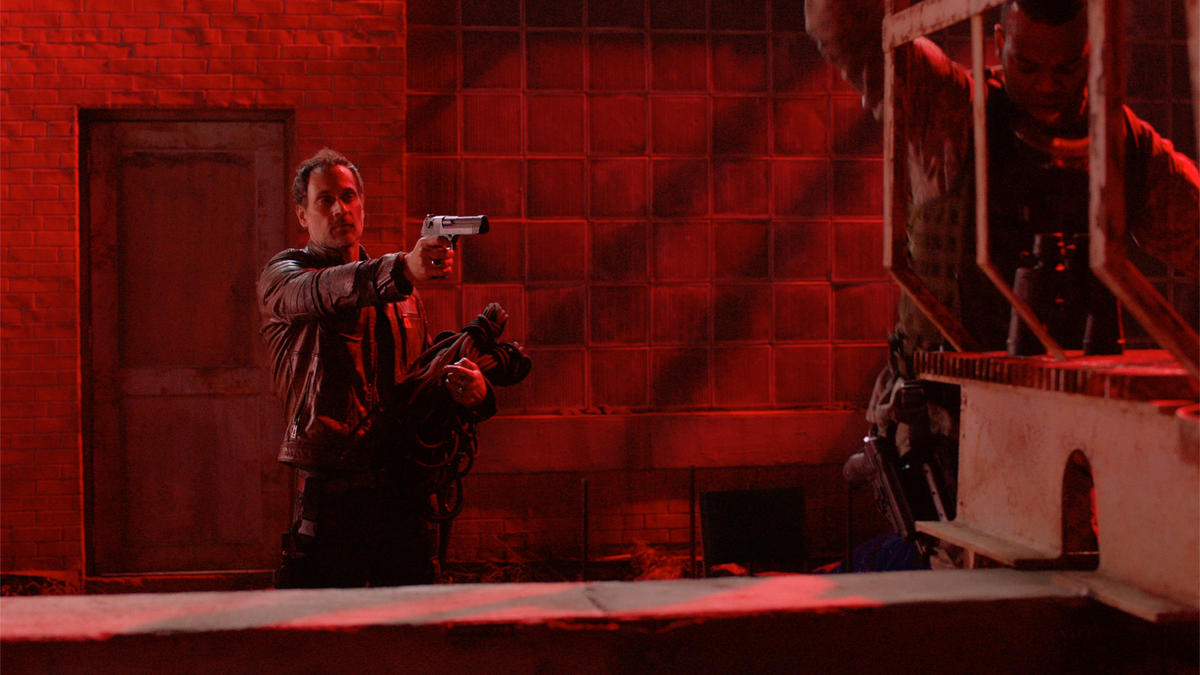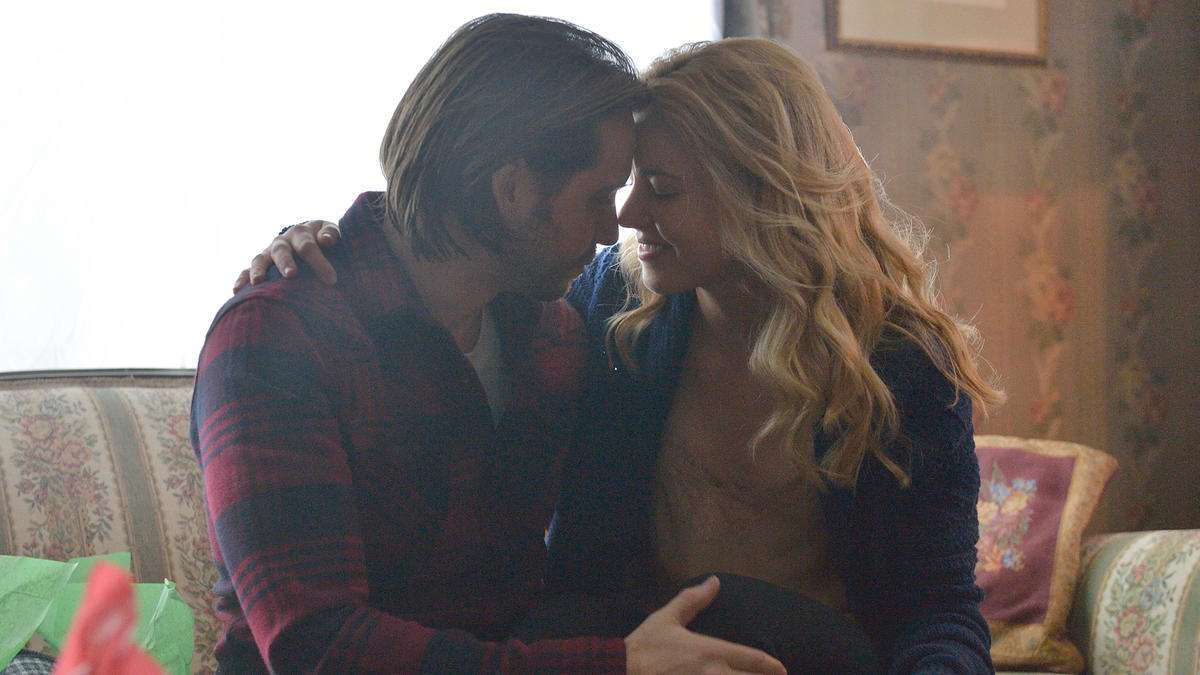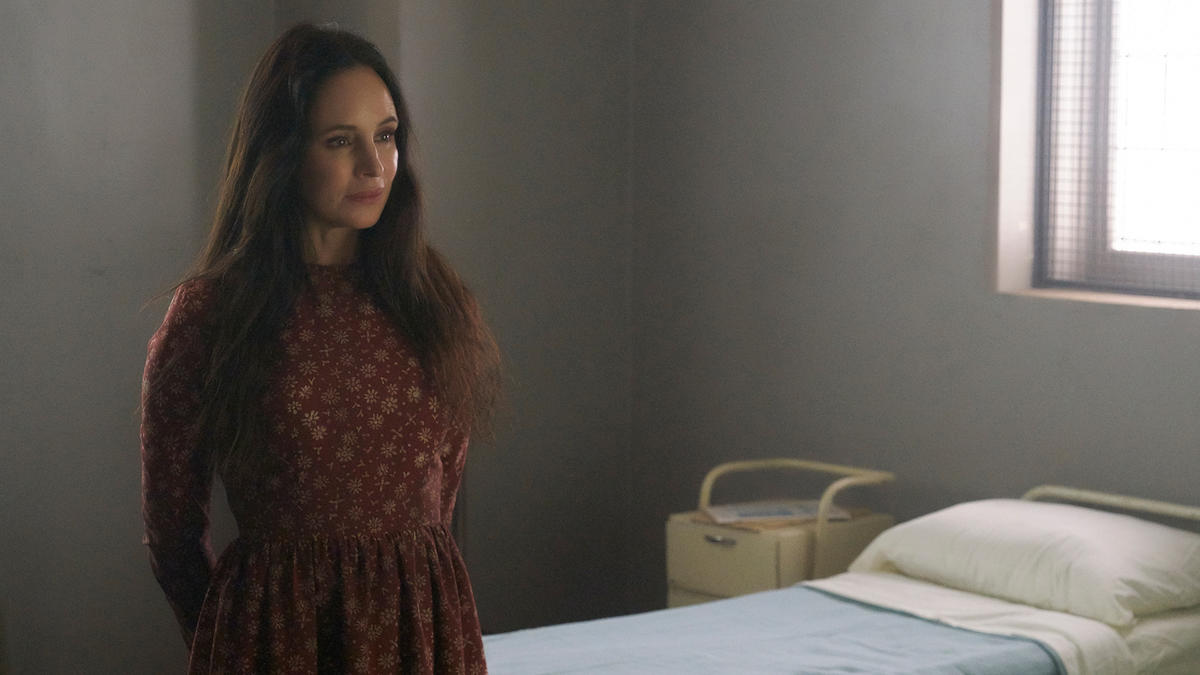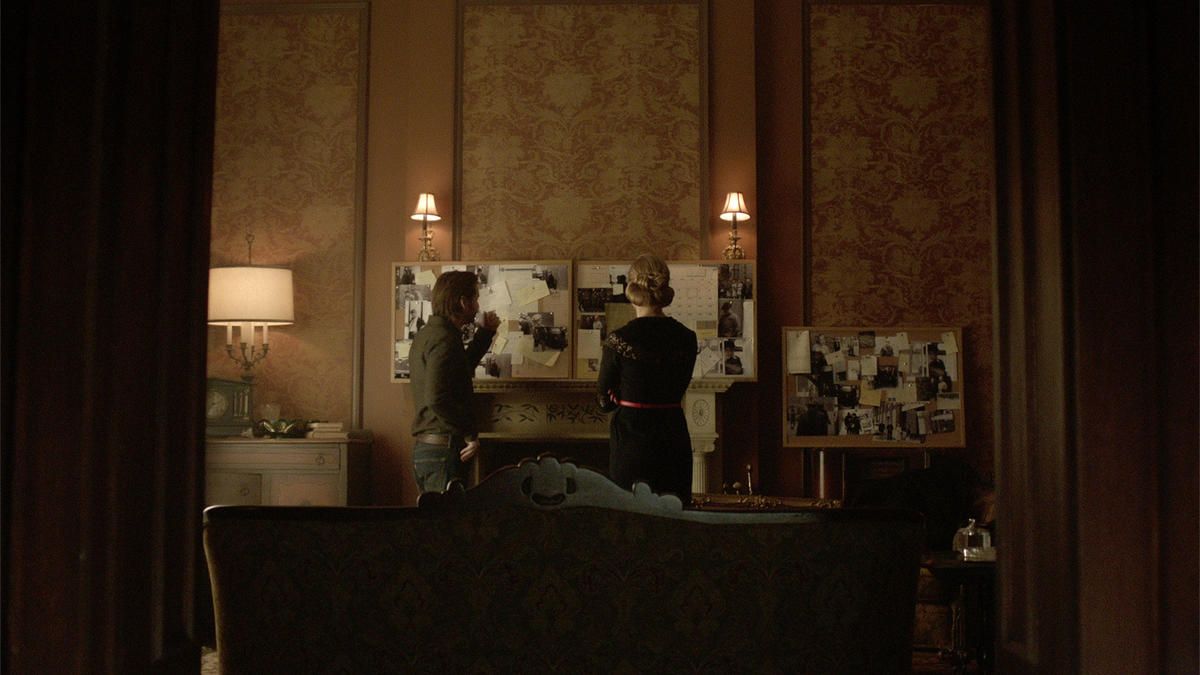Interview: 12 Monkeys’ Showrunner Terry Matalas on Female Directors and Writing True to Your Characters
The first part of my interview with 12 Monkeys’ showrunner Terry Matalas got a little sidetracked by time travel. Thankfully we found our way back to our correct timelines and were able to pick up our discussion on the ramifications of that epic Season 2 finale on Syfy, female directors, and writing true to your characters.
[Editor’s Note: This interview was conducted prior to the Season 2 finale and has been split and edited slightly. Part 1 can be found here and Parts 1 and 2 of my interview with actor Amanda Schull can be read here and here. If you’re behind on the series you can find information on how to catch full episodes here. Spoilers to follow for the Season 2 finale.]
Pantozzi: I spoke to Amanda [Schull] about the women of this show, and how fantastic they are, and as someone who specifically criticizes many creative works for how they treat their female characters I’m also very happy to say that I never have an issue with how these women are portrayed on 12 Monkeys and [like] how different they are.
Matalas: That’s great to hear. I love to hear that.
Pantozzi: And I hate asking this, I know how weird it sounds, but how do you write them so well? [laughs]
Matalas: It’s funny, I’ve gotten this question before and I don’t…I’m glad that people are responding that way. I wouldn’t say that we set out to do that. We just sort of set out to create the best character. And make sure they stand on their own, both male and female. I think that there’s lots of things I don’t do well but I cast a pretty good show. and we have this incredible cast so when you have Barbara [Sukowa], Emily [Hampshire], Amanda Schull, it just demands, they demand that respect, they demand to be strong characters, they demand to be…we never set out to say, we never have approached a story in a way where we’re going to make this about women empowerment at all. It really only just comes from what makes the best character. So along that path, that’s how you get there, then we’re happy about it. I wish I could say we had that agenda, it sort of just happened.
Pantozzi: To that end, a lot of shows fall into tropes with female characters having a romantic entanglement and of course Cassie and Cole’s relationship is an important part of the show but it’s very much in the background. Eventually leading up to the end of the season more, but what made you go in that direction, to have the love story be secondary, where in other stories it might be pushed in your face?
Matalas: For me, a love story is more powerful when you really earn it. You want that tension and then even if you are going to go about breaking that tension you have to kind of think about where does that go? For me it was always about what is the most realistic way people would handle the pressures of the apocalypse. In Season 1 when I started running the room I sort of was like, ‘Would you just go on a date?’ Believe me there were notes of that nature. That it would be better for them to have more romantic entanglements in Season 1. And it just didn’t feel real to me. You wanted to grow their, first their bond, and then the attraction is either there chemistry wise or not but really grow their bond first. And then you know, see them be pulled away from it. They should have different points of views. Find the organic way to tell that story. So that’s kind of just how we approached it. And believe me, I can’t sit and say it was the best idea because there are people going nuts saying, ‘I just want them to kiss.’ They don’t care about paradoxes or the apocalypse, all they care about is themselves. So I don’t know, it’s kind of just making the show I’d like to see.
Pantozzi: Right. Well that brings me to another question actually because you seem very interactive with fans on Twitter and not a lot of creators do that. Do you feel that that’s part of your responsibility as a creator, or do you feel more like, you owe certain things to this fandom that’s been with you this whole time?
Matalas: It’s fun, for me it’s…to make a season of 12 Monkeys you have to go away for a year and work with your writers, your talented production personnel, your cast and you’re kind of making this home movie only for you and the studio and network execs. So it’s nice to see, once it starts airing, what the audience is thinking and interacting and engaging them. It’s fun. I think maybe it can get a little dicey because what happens is it becomes expected, that that interaction happens, and if you don’t like something they say or respond they can get mad. If you have a busy week and you’re not on it as much. So I think it’s a tricky thing. I probably have indulged it a bit too much and I can understand why some people have burned out and said, ‘I’m out.’
Pantozzi: Yeah, I mean it’s interesting from both a fan perspective and a journalist perspective, I see both sides of it. It’s also frustrating for me because I see people who are trying to have legitimate conversations and criticisms with creators and hear what they’re thinking, get drowned out by the people who can only shout in all caps, you know?
Matalas: Absolutely. Absolutely. I’ve only really gotten into one particular back and forth via Twitter about what was an important issue to some fans but the argument they were making was a plot point that was just mathematically wrong, what they were saying. And therefor once I was like ‘Well actually, that’s not what happens in the plot,’ it became, ‘Well you’re not listening to me.’ When I totally was. So what happens is you’re in a tough position because you do want to listen but then does that mean you are not entitled to have your own opinion as well, and if you give that, are you an asshole? And it’s a tricky thing and I think there’s been a lot of…Cassie is a very strong character this season. That’s rubbed some fans the wrong way and sometimes particularly harshly, and I have jumped in defense of Cassie and strong women in general. It can get a little bit emotionally draining, you understand why you probably shouldn’t be engaging.
Pantozzi: Yeah I spoke a bit about this with Amanda and she also was saying how she felt some fans hadn’t taken to heart where the story was actually taking Cassie and that all the choices she was making were actually logical from where she was standing. And maybe it’s a different thing for me since I watched several episodes at a time when I was catching them on the Syfy site but I understood that, I understood where the character was coming from and why she was not jumping head first, like we said, into a romantic entanglement.
Matalas: It’s also all the characters have shades of grey, including Cole. Cole wasn’t the greatest guy last season, I mean, he was killing everybody, including good people. We try and keep all these things as writers in our heads about really tracking what would really, this person Cassie, be going through. Because it’s been a couple of years for fans but it’s been a much shorter time theoretically for her, and it’s traumatic. You would definitely have post-traumatic stress from all of this, without a doubt. I have it just from a bad day of traffic in Los Angeles, I can’t even imagine what people would have going through these horrible things. So it’s just trying to come at it from that point of view.
Pantozzi: I’ve been very interested to see the development of all the characters this season but particularly Deacon has become such a team player, of a sort, in Season 2. Was that always the plan or did it sort of evolve that way because of how fans reacted to Todd [Stashwick] or what?
Matalas: We always knew we wanted to bring Deacon back into the fold for Season 2 back in Season 1, especially after Todd’s performance in the fourth episode. So bringing him on Team Splinter was something, again it was like, if we’re going to do this we have to do it in the most realistic way possible which included a bunch of storylines in which they tried to kill each other before accepting them. So yeah, it was always the plan but we had to make sure we did it just right and it’s so earned. And I think by the end of the season…how much have you seen, by the way?
Pantozzi: Oh I’m completed now.
Matalas: Oh, you’ve seen all of it…What did you think?
Pantozzi: Oh, I loved it! [laughs]
Matalas: Ok, I was holding my breathe like, ‘Oh no, what if she didn’t like the ending?’ But definitely by the end of the season he has sort of a full journey where he kind of finds his humanity, so that’s how we mapped it out. Next season he’s got something really, really cool.
Pantozzi: You have to tease me, right?
Matalas: Yeah, I gotta. I gotta.
Pantozzi: Something I was really excited about this season was of course Madeleine Stowe, who played Kathryn Railly in the film, has a guest spot in the finale. How did that come about and what was it like working with her?
Matalas: Madeleine, when we were shooting Season 1, we sent her…Richard Suckle and Chuck Roven, who made the original film, sent her the pilot. She had just a beautiful response to it, particularly really enamored with Cassandra Railly and how her, Cassie is a much more proactive character in the series by act 2 where really her character is behind the ball until the last 20 minutes of the movie. So she was really enthusiastic about it and she loved it. Her mind boggled at the sci-fi, she’s like ‘I don’t know how you can even think of that.’ So the idea was we always wanted to bring her onto the show but only if it’s in a really meaningful way. For me, I didn’t want to bring her on as like, a relative of Cassie or anything. I said everybody always remembers the insane characters, particularly they remember Brad Pitt from the movie, let’s give her her chance to be insane. Put her in the asylum this time, let Cole be the sane one in the asylum and her be the crazy one. So I called her, I was a little nervous but I pitched out the whole mythology and explained it all to her and she was on board. She came out for a couple of days in Toronto and played with us and we were lucky to have her. I think it’s a real treat for fans of the movie to see her in this role.
Pantozzi: That’s awesome. Yeah, I thought she was really great. It added a nice little something. I want to ask, Orphan Black recently announced that their fifth season was going to be their last and as someone who obviously is working on a show that also has this grand mythology to it, how important do you feel it is to one, not outstay it’s welcome and go too far into the mythology and then two, have a clear end game in mind?
Matalas: I think it’s really important. [laughs] Absolutely important, to have that map in your head. You want to always leave a little wiggle room for new things you find along the way so that’s important but yeah, knowing you’re end game, knowing the big arcs are important. Particularly, you’ll see when you get to the finale…if you’re going to tell the story and say the Witness is the child of Cole and Cassie, it’s not enough that you do that as a bombshell, you need to know exactly what it means for the rest of the series and what it means for the series you just showed. And that it made sense, it couldn’t just be something you sort of came up with on the fly. And then it asks a whole bunch of other mythological questions which is ‘Ok, we know who is the Witness but we don’t know why he’s done this. What his point of view on the world is and why and how would our characters react to knowing it’s because of them that the person who destroys the world exists.’ You need answers to those questions and you need a map. I think you have to know. Watching Game of Thrones right now is one of those things where I think all of us without the books are wondering, do they know how they’re going to end this because there’s so many parties? But you have to imagine that they have a map in their head and I think this season is proof that they’re putting all those pieces together.
Pantozzi: Last time I checked there wasn’t any news about Season 3, is there any news you can give me on that end?
Matalas: Umm…stay tuned. That’s all I can say. Like, stay really tuned.
Pantozzi: [laughs] Ok. I wanted to ask a bit about, there’s a big conversation obviously in Hollywood and in fandom about diversity both on screen and off. I was talking with Amanda about how I think there’s only been two female directors on the show which is actually fairly normal for a lot of TV unfortunately. Is that something that comes to mind? I know a lot of people, it doesn’t even, it’s just ‘let’s get someone,’ but is that something you’ve been thinking about with the conversations that have been happening?
Matalas: Absolutely. I mean you want every kind of voice that you can. Particularly with female directors I find that they’re so in demand for this reason that they are hard to schedule. And my whole thing is, for women who want to be directors, get on it because everybody wants you. There aren’t enough. And I don’t know if that’s something you’re not allowed to say but I have a really hard time every year, there are four or five names that I’m like ‘Great! I want all of them’ and none of them are available. And at that point I have to say, can we go with somebody a bit more untested now? Ok so everybody you want is not available, would you go with a first time woman director and the answer is yes. Depending on that particular episode and the demands of the episode, it might just be a bit too financially risky. Because after all you might want experience on a big-budget, action episode that you wouldn’t want a first time man, woman, or alien doing. So it’s challenging. I absolutely wish there were more women directors. I think it’s something I’d love to see a huge influx of in this town.
Pantozzi: Just one more question then about Jennifer Goines’ character, it’s been a very interesting season for her, particularly watching her older self die. That was also something that I feel like I haven’t seen before. You know in time travel stories it’s always ‘Don’t interact with your past selves – danger, danger!’ She’s just the most fantastic actor and every time I see a scene with her I never know what to expect and that’s what I love about it. How is that from your perspective?
Matalas: It’s what I set out to do from Day One. From casting, we saw so many people. And I really wanted Jennifer to have a completely different energy than the rest of the show. That she could serve as our everything. She could be scary, she could be funny, she can be wild, she can be pure comedy, she can be sad and bring raw emotion. There really wasn’t anyone else ever truly in contention for this role other than Emily Hampshire. She just has naturally this energy to her that just pops off the screen. And is not too far off from her character. What you see is what you get. With Jennifer Goines, of all the characters she’s played, the closest she is to real life is Jennifer and it’s fantastic. And just like Jennifer, you want to be around it and you never know what you’re going to get.
Thank you so much to Terry Matalas for taking time to speak with TheNerdyBird.com. A reminder that Syfy has renewed 12 Monkeys for Season 3 so you can look forward to so much more next year. In case you missed my other interviews: “12 Monkeys’ Amanda Schull on Cassie’s Growth and Her Fantastic Female Co-Stars,” and “12 Monkeys’ Amanda Schull on That Intense Finale, Love Stories, and Motherhood,” and “JK Rowling Saved the Back to the Future III Train From Becoming a Harry Potter Attraction.”





Aweson, awesome interview by a talented interviewer who doesn’t ask the same 13 questions everyone has heard before! Am sharing with my site “Addicts of the 12 Monkeys” with full attribution and my gratitude!